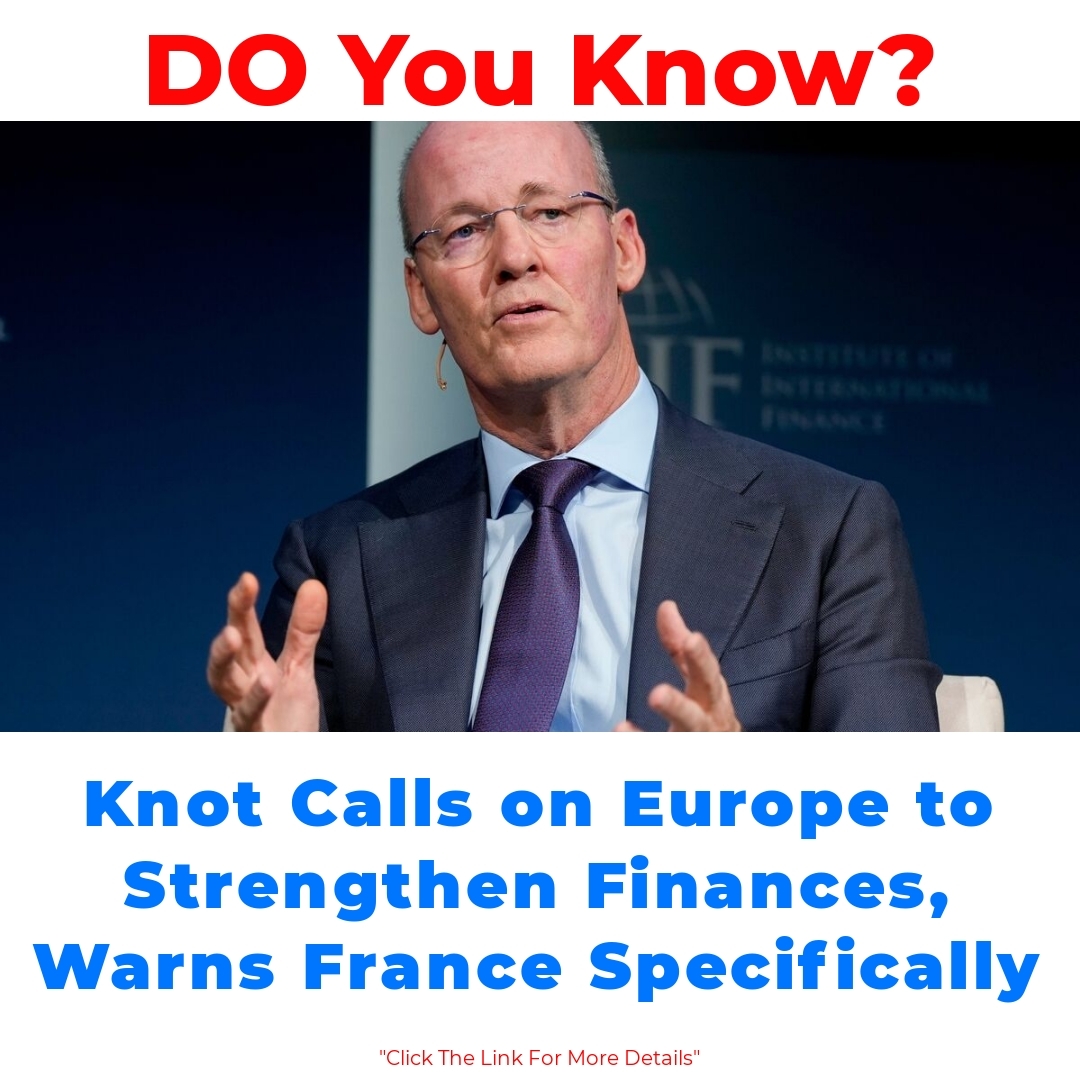The European Central Bank (ECB) plays a crucial role in ensuring financial stability across Europe, particularly during challenging economic times. Klaas Knot, a prominent member of the ECB Governing Council, emphasizes the urgent need for European governments, especially France, to exercise financial discipline. This article explores Knot’s call for responsible fiscal management and highlights its significance for national economies.


The Role of the European Central Bank in Financial Stability
The European Central Bank (ECB) serves as a cornerstone of financial stability across Europe. One of its primary functions is managing monetary policy, which directly influences the economic health of member states. The ECB also plays a critical role in promoting financial discipline among European governments. By setting regulatory measures, the ECB supports economies throughout the continent, ensuring that they can weather financial storms and maintain growth.
Through its various initiatives, the ECB encourages European governments to exercise fiscal responsibility and manage resources prudently. This, in turn, creates a stable environment for businesses and consumers alike, which is essential for sustained economic recovery and growth.
Klaas Knot’s Call to Action
Klaas Knot, a key member of the ECB Governing Council, has been vocal about the need for rigorous fiscal policies across Europe. In his recent statements, Knot urged European governments to prioritize financial discipline, particularly highlighting the situation in France. He underscored that responsible fiscal management is not just an option but a necessity for sustaining the economic vitality of the region.
Knot pointed out that without a concerted effort to manage finances, European economies risk stagnation and long-term instability. His message resonates particularly in the context of rising inflation and shifting market conditions, reinforcing the urgent need for sound fiscal strategies.
The Importance of Financial Discipline for European Countries
Financial discipline can be defined as the consistent practice of managing public finances in a prudent manner. For European countries, this discipline is crucial for their overall economic health. Poor fiscal management can lead to deficits, debt accumulation, and a lack of investor confidence, all of which can stifle long-term growth.
Moreover, maintaining financial discipline allows countries to navigate unexpected economic challenges more effectively. When governments prioritize responsible spending and budgeting, it sets a solid foundation for future prosperity.
France’s Economic Challenges and the Need for Fiscal Policy Reform
Currently, France faces significant economic challenges that highlight the pressing need for fiscal policy reform. With rising public debt and sluggish growth, the country’s financial stability has come under scrutiny. Analysts are concerned that if France does not implement effective fiscal measures, the repercussions could extend beyond its borders, affecting the stability of the entire European Union.
Knot’s emphasis on financial responsibility becomes particularly relevant here. The impact of fiscal policy on France’s economy is profound, influencing everything from employment rates to public services. If France manages to get its fiscal policies on track, it not only benefits its own economy but also strengthens the European Union’s overall financial foundation.
How European Governments Can Improve Fiscal Management
To enhance their fiscal policies, European governments can take several practical steps. Here are a few strategies they could implement:
– **Strict Budgeting Practices:** Establishing clear and accountable budgeting processes can help governments manage their finances more effectively.
– **Transparent Reporting:** Regular and transparent financial reporting can build public trust and encourage responsible spending.
– **Collaboration Among Nations:** Sharing best practices and engaging in collaborative financial initiatives can lead to improved fiscal management across Europe.
By adopting these strategies, European governments can create a culture of financial discipline that leads to sustainable economic health.
Conclusion
Klaas Knot’s advocacy for improved fiscal management serves as a critical reminder of the importance of financial discipline in Europe. As a leading member of the ECB Governing Council, Knot’s insights into fiscal policy underscore the urgent need for countries, especially France, to manage their finances responsibly. The European Central Bank plays an essential role in guiding these efforts, ensuring financial stability amid various challenges facing European nations.
As we move forward, it’s vital for all stakeholders to engage with the conversation around fiscal health. Keeping an eye on the European Central Bank’s policy initiatives and the fiscal strategies of European governments can provide valuable insights into the future of Europe’s economy.
FAQ
What is the role of the European Central Bank (ECB) in financial stability?
The ECB works to maintain financial stability throughout Europe by managing monetary policy and promoting fiscal discipline among member states. It helps create a stable environment that allows economies to grow and deal with financial disruptions.
Why is financial discipline important for European countries?
Financial discipline is essential because it helps prevent deficits and debt accumulation. This good management establishes investor confidence and makes it easier for countries to tackle unexpected economic challenges.
What are some current economic challenges facing France?
France is dealing with rising public debt and sluggish economic growth. Without necessary fiscal reforms, these challenges could impact not only France but also the entire European Union’s stability.
What does Klaas Knot emphasize about fiscal policy?
Klaas Knot stresses the importance of rigorous fiscal policies. He believes that responsible management of finances is critical to ensuring the economic vitality of Europe, especially in light of inflation and changing market conditions.
How can European governments improve their fiscal management?
Here are some strategies European governments can implement:
- Strict Budgeting Practices: Develop clear and accountable budgeting processes.
- Transparent Reporting: Regularly provide financial reports to build public trust.
- Collaboration Among Nations: Share best practices and work together on financial initiatives.
What impact does fiscal policy have on EU member states?
Fiscal policy significantly affects employment rates, public services, and overall economic health in EU countries. Sound fiscal measures can lead to a more resilient economy, benefiting both individual countries and the EU as a whole.





